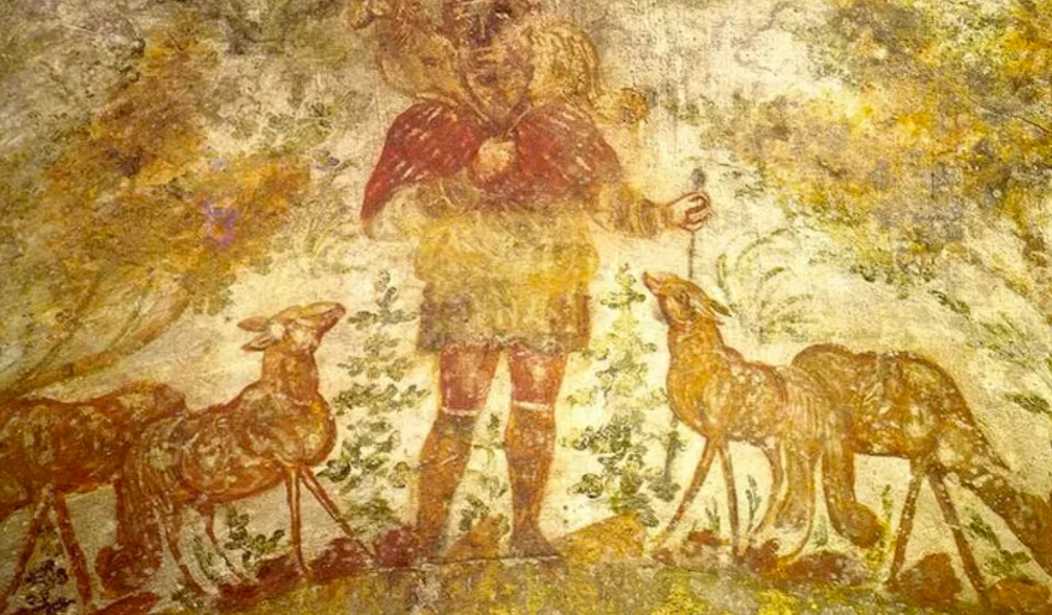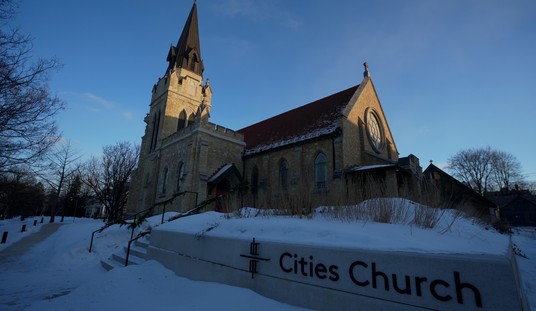[Editor’s note: Ed Morrissey is off today. The following is one of his Sunday reflections from May of last year. ]
This morning’s Gospel reading is John 10:27–30:
Jesus said:
“My sheep hear my voice; I know them, and they follow me. I give them eternal life, and they shall never perish. No one can take them out of my hand. My Father, who has given them to me, is greater than all, and no one can take them out of the Father’s hand. The Father and I are one.”
Let’s start off today by recalling a Gospel reading that doesn’t appear in today’s readings. In Matthew 20, Jesus taught the disciples and the people the Parable of the Workers in the Vineyard. This involved unpacking a dispute about workers who got hired at different times but ended up with the same pay. The workers who got hired first objected, saying that the landowner had paid them the same as the latecomers despite doing much more work. This has similarities to the elder brother in the Parable of the Prodigal Son, but Jesus says this at the end:
“So the last will be first, and the first will be last.”
What does it mean when Jesus says, The first will be last? This teaching has a myriad of meanings. It applies to Christ Himself, who is both the first and the last, the Alpha and Omega. As we say at every Mass, through Christ were all things made, being the spoken Word of God. Christ will be our interlocutor until the end of time, as He promises, the Last to complete God’s work of salvation.
In today’s readings from our brief Gospel, Acts, and Revelation, we see not just how the first becomes last and vice versa. We also see another reversal, albeit more dimly, in which the Lamb becomes the Shepherd.
Our first reading gives us the genesis of the first step into the Great Commission — the command to go and make disciples of all nations. Until this point, the Apostles had focused their message mainly on the Hebrews, God’s chosen people, in the various cities in the region. These people were (and still are, as we read elsewhere in Revelation) the first in God’s plan. And the Apostles made many conversions in these communities, including in Jerusalem. When the Israelite leadership rejected them, however, the Apostles shifted their attention to the Gentiles, who were normally shunned by the Hebrews. In this way, the first became last and the last became first … but none were precluded.
It is our second reading that gives us a more profound sense of this reversal. John writes about his vision of Heaven and the devotion of the martyrs, whose robes have been washed into purity by the blood of the Lamb. The elder in the vision explains the scene to John:
“For this reason they stand before God’s throne and worship him day and night in his temple. The one who sits on the throne will shelter them. They will not hunger or thirst anymore, nor will the sun or any heat strike them. For the Lamb who is in the center of the throne will shepherd them and lead them to springs of life-giving water, and God will wipe away every tear from their eyes.”
This passage struck me during our Mass last night. (I now sing baritone in the choir on Saturday evening Masses.) It is the Lamb who becomes the shepherd, another example of the first becoming last, at least conceptually. This is particularly striking, since the image of Christ as the Good Shepherd is perhaps the most enduring in Christianity. Examples of this adorn catacombs and churches since the first days of the faith, with a lost lamb slung over Jesus’ shoulders. And yet it is the Lamb, the One who bears all our sins, that ends up leading us to water.
The first shall be last indeed.
In a broader sense, John’s entire vision in Revelation gives us more examples of the first becoming the last, too. Revelation gives us a detailed look at the wedding feast of the Lamb, in which He serves as the Bridegroom to marry us to God. We as material and spiritual beings came last in Creation, indeed even in the Creation sequence as taught in Genesis. The beings of pure spirit preceded us, as did the Earth and all its contents. God’s plan to bring us back into His divinity not by edict or force but to allow us to find Him through love and Christ divided our elder brothers in spirit, in much the same way as the elder brother in the Prodigal Son narrative and the first workers in the Vineyard parable as well. Those who departed will not return, but those who remained still participate in Christ’s shepherding, as we see repeatedly in Revelation, on which our Mass is modeled.
In this, we can see the grand arc of salvation. God wants to show us His favor abundantly, even though we are the least and last of His Creation. We are the Last, and yet through Christ we will be made first, as long as we love and trust in Him. And because Jesus is the Alpha and Omega, the first and Last, he becomes both the Good Shepherd and the Lamb who leads us to our salvation.
All we need to do is recognize the sound of his voice, and no one will be able to take us out of His hand.
The front page image is artwork from the early Christian catacomb of Domitilla/Domatilla (Crypt of Lucina, 200-300 CE). Via Wikimedia Commons.
“Sunday Reflection” is a regular feature, looking at the specific readings used in today’s Mass in Catholic parishes around the world. The reflection represents only my own point of view, intended to help prepare myself for the Lord’s day and perhaps spark a meaningful discussion. Previous Sunday Reflections from the main page can be found here.







Join the conversation as a VIP Member